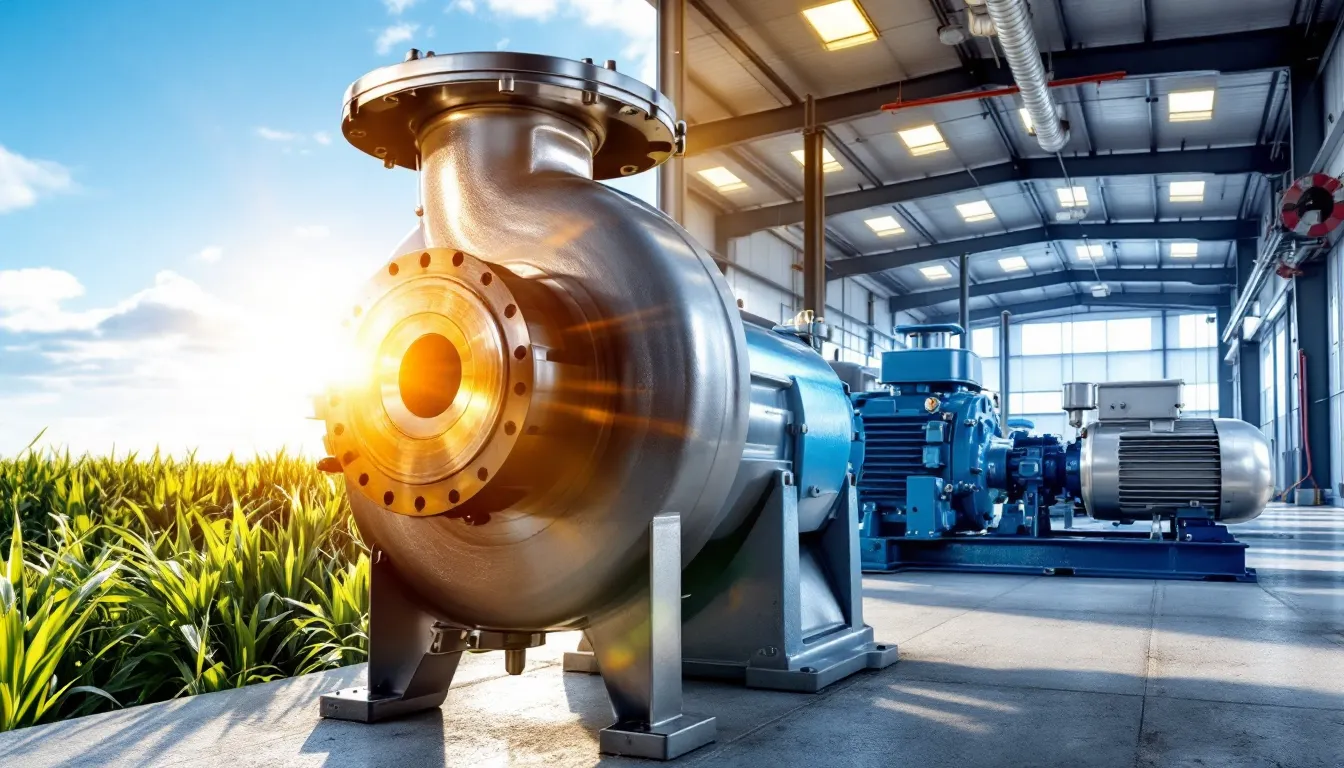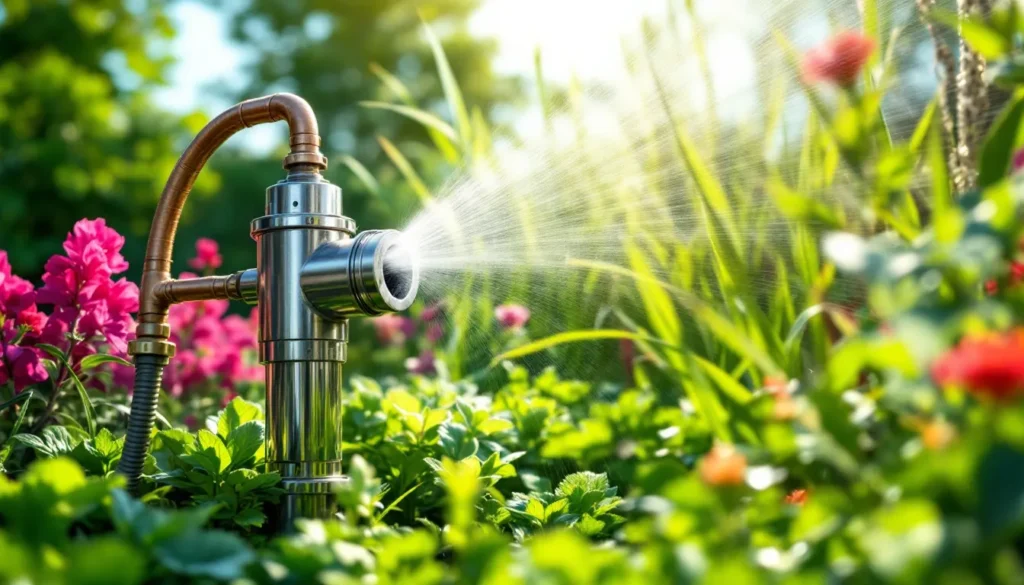Key Takeaways
- Function and Importance: Water pumps are essential mechanical devices that move water from one location to another, playing a critical role in residential and industrial applications.
- Types of Water Pumps: The primary types of water pumps include centrifugal pumps, submersible pumps, and positive displacement pumps, each suited for specific tasks based on their mechanisms.
- Key Components: Understanding components like the motor, impeller, and volute is crucial for appreciating how water pumps operate and their efficiency in water movement.
- Diverse Applications: Water pumps are utilized in various sectors such as agriculture for irrigation, flood management, and industrial operations, showcasing their versatility.
- Operational Principles: Water pumps operate on basic principles of pressure and flow, utilizing mechanisms of suction and discharge to facilitate water movement efficiently.
- Choosing the Right Pump: Knowledge of water pumps’ types and applications aids in selecting the appropriate equipment for specific needs, ensuring effective and economical performance.
Water pumps play a crucial role in our daily lives, often working behind the scenes to ensure we have access to clean water. Whether you’re watering your garden, draining a flooded basement, or providing water for industrial processes, understanding how these devices function can be incredibly beneficial.
At their core, water pumps are designed to move water from one place to another, making them essential for both residential and commercial applications. With various types and technologies available, knowing which pump suits your needs can save you time and money. Let’s dive into what a water pump is and how it can make a difference in your world.
What Is A Water Pump?
A water pump is a mechanical device designed to move water from one location to another. It operates by creating a difference in pressure, enabling water to flow through pipes efficiently. Water pumps serve various applications, including irrigation, building supply systems, and wastewater management.
Types of Water Pumps
- Centrifugal Pumps: Centrifugal pumps rely on rotational energy to move water. They are commonly used in residential and industrial settings for their efficiency in transferring water at high rates.
- Submersible Pumps: Submersible pumps operate underwater, making them ideal for applications like drainage and well pumping. They feature a sealed motor that prevents water from entering the housing.
- Positive Displacement Pumps: Positive displacement pumps move a specific volume of water with each rotation. They’re often used in situations requiring consistent flow rates, such as chemical processing.
Key Components of a Water Pump
- Motor: The motor provides the necessary power to operate the pump. Electric motors are prevalent, but gas or diesel engines may also be used in specific contexts.
- Impeller: An impeller is a rotating component that accelerates water inside the pump, facilitating movement. Impeller design directly affects the pump’s efficiency and flow rate.
- Volute: The volute is a casing that helps guide water from the impeller to the discharge pipe. It converts kinetic energy from the water into pressure.
Applications of Water Pumps
- Irrigation: Water pumps play a vital role in agriculture, supplying water to crops efficiently and promoting better yield.
- Flood Management: Pumps are essential in controlling floodwaters, enabling timely drainage of accumulated water in affected areas.
- Industrial Processes: Various industries use water pumps for cooling systems, material transport, and process water supply, ensuring operations run smoothly.
Understanding the various types and components of water pumps aids in selecting the right equipment for your specific needs.
Types Of Water Pumps

Understanding the various types of water pumps is essential for selecting the right equipment for specific applications. Here’s a closer look at two primary categories: centrifugal pumps and positive displacement pumps.
Centrifugal Pumps
Centrifugal pumps utilize rotational kinetic energy to move water. These pumps consist of an impeller, which rotates inside a casing, generating a centrifugal force that pushes water outward.
Key characteristics of centrifugal pumps include:
- High Flow Rates: Ideal for applications requiring large volumes of water, such as irrigation systems and municipal water distribution.
- Low Viscosity: Most effective for thin liquids; not suitable for highly viscous fluids.
- Self-Priming: Some centrifugal pumps can create a vacuum that allows water to enter the pump without external assistance.
Common applications include agricultural irrigation, water transfer, and swimming pool circulation.
Positive Displacement Pumps
Positive displacement pumps move water by trapping a fixed amount and forcing it through the discharge pipe. This consistent flow maintains pressure even with varying conditions.
Key characteristics of positive displacement pumps include:
- Variable Flow Rates: Can manage a wide range of flow rates, making them versatile for different tasks.
- High Efficiency: Offers consistent pressure output, useful in hydraulic systems and industrial applications.
- Handling Viscous Fluids: Suitable for moving thick liquids like sludge or oil.
Common applications include wastewater treatment, hydraulic systems, and fuel transfer.
How Water Pumps Work
Water pumps operate by transferring water from one location to another using mechanical energy. By creating a pressure difference, these pumps facilitate the effective movement of water in various applications.
Basic Principles
Water pumps function on basic principles of physics, particularly pressure and flow. The two main mechanisms involved are suction and discharge. When the pump motor activates, it generates a rotational force that either pulls water into the pump or pushes it out. Centrifugal pumps rely on this principle, spinning an impeller to create centrifugal force, lifting water into the pumping chamber. Positive displacement pumps trap a fixed volume of water and push it through the system, ensuring continuous flow. Understanding these principles allows for better application in tasks like irrigation or wastewater management.
Key Components
Several key components contribute to the efficiency of water pumps:
- Motor: Drives the pump’s mechanism, converting electrical energy into mechanical energy.
- Impeller: A rotating component in centrifugal pumps that accelerates water, creating flow.
- Volute: A casing that directs water flow and helps convert kinetic energy into pressure.
- Suction Pipe: Transports water into the pump, designed to minimize pressure loss.
- Discharge Pipe: Carries water away from the pump once it’s pressurized.
Each component plays a crucial role in ensuring optimal operation, affecting factors like flow rate, efficiency, and suitability for different applications.
Applications Of Water Pumps
Water pumps have diverse applications across various sectors, crucial for efficient water management and distribution. Understanding specific uses helps in selecting the right type of pump.
Residential Use
Water pumps support numerous residential applications. Common uses include:
- Irrigation: Pumps supply water for gardens and lawns, helping maintain plant health and aesthetics.
- Water Supply: Pumps transport water from wells or reservoirs to homes, ensuring consistent access to clean drinking water.
- Sump Systems: Sump pumps remove excess water from basements, preventing flooding and water damage.
- Swimming Pools: Pumps circulate water in pools, ensuring cleanliness and proper chemical distribution.
Industrial Use
Water pumps play a vital role in various industrial processes. Key applications encompass:
- Manufacturing: Pumps move water in cooling systems, ensuring equipment operates at optimal temperatures.
- Mining: Dewatering pumps remove groundwater from mines, allowing safe extraction of minerals.
- Wastewater Treatment: Pumps facilitate the transfer of wastewater through treatment processes, safeguarding public health and the environment.
- Fire Suppression: Fire pumps provide reliable water supply during emergencies, vital for protecting life and property.
Each application requires specific pump characteristics, emphasizing the importance of understanding your requirements for optimal performance.
Conclusion
Understanding water pumps is essential for effective water management in both residential and industrial settings. These mechanical devices play a vital role in ensuring you have access to clean water for various applications. By knowing the different types of pumps and their specific uses you can make informed decisions that enhance efficiency and performance.
Selecting the right pump not only saves time but also reduces costs in the long run. Whether you’re managing irrigation systems or industrial processes understanding the mechanics behind water pumps will empower you to optimize your water usage. So take the time to evaluate your needs and choose the pump that best suits your requirements.

Hi, I’m Md Rofiqul, a gardening enthusiast who loves spending time in the garden and backyard. I enjoy caring for plants, growing flowers and vegetables, and creating a green space that feels peaceful and refreshing. Gardening is more than just a hobby, it’s a passion that connects me to nature and brings joy to my daily life. Living with plants inspires me to embrace simplicity, patience, and sustainability while making every day more colorful and rewarding.
